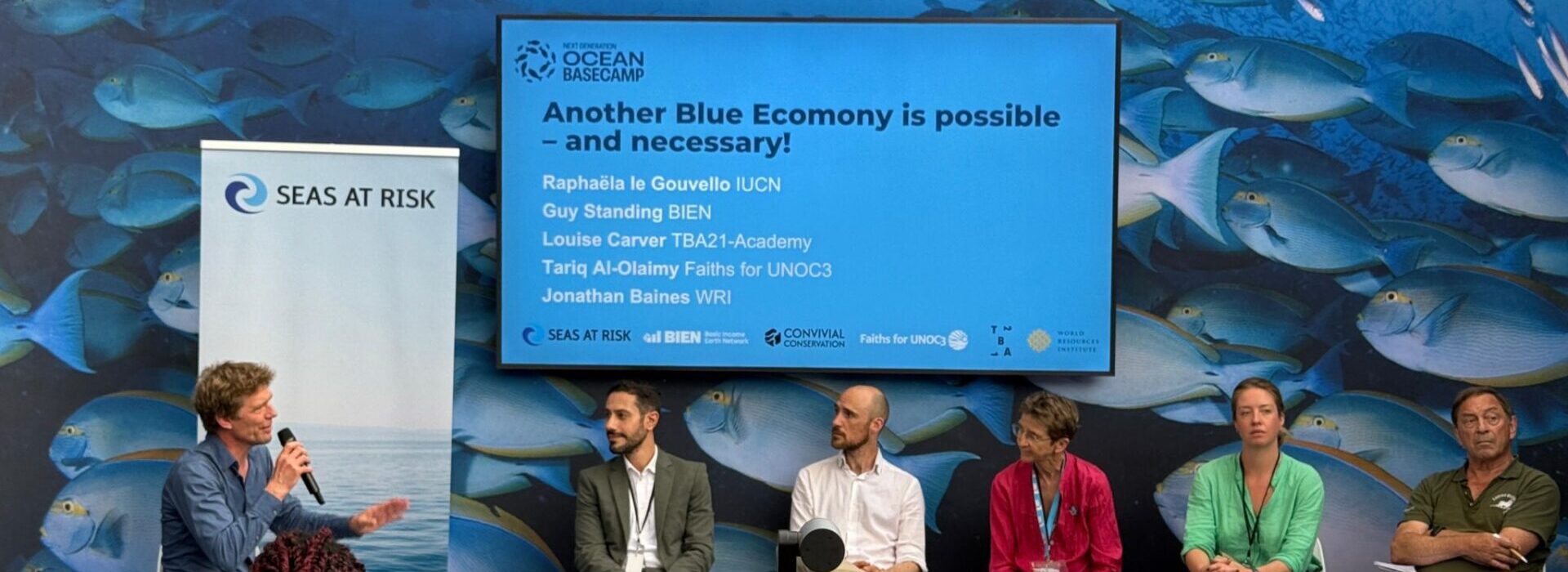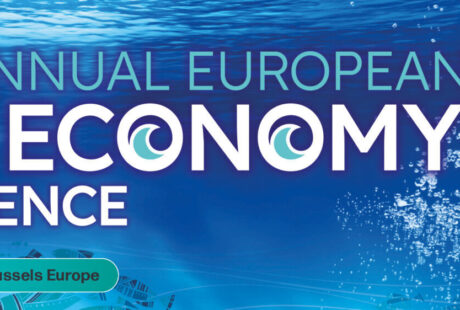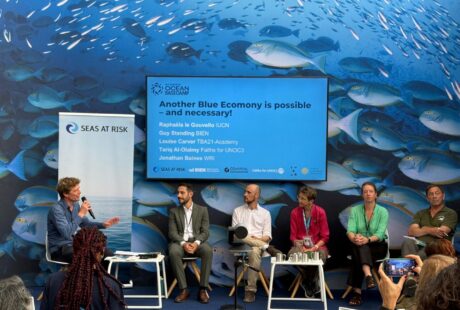At the UN Ocean Conference’s (UNOC) off-site Ocean Basecamp, a standing-room-only session challenged one of the least questioned aspects of ocean policy: the economic models driving marine degradation. Under the provocative title “It’s the (Blue) Economy, Stupid!”, the event called for a move beyond “blue growth” towards regenerative, just, and community-led alternatives – approaches that are already taking root.
Moderator Tobias Troll (Seas At Risk) opened with urgency, noting that economic systems remain a blind spot in most ocean dialogues. The dominant focus on finance and growth, he argued, risks reinforcing extractive structures rather than transforming them.
From Growth to Regeneration
The first segment, “Another Blue Economy is Necessary – and Possible”, gathered five leading voices:
- Raphaëla le Gouvello (IUCN) contrasted the current growth-based model with a regenerative one centred on rebuilding ocean health, respecting Indigenous knowledge, and excluding harmful industries from the “blue” label.
- Guy Standing (SOAS) criticised the commodification of marine resources since UNCLOS, advocating for commons-based governance under local stewardship.
- Louise Carver (TBA21–Academy) introduced “convivial conservation”, warning against market tools like carbon credits that risk greenwashing and calling for justice-driven conservation.
- Tariq Al-Olaimy (Faiths for UNOC3) proposed a “blue moral economy” grounded in care, humility, and sufficiency, inspired by ancient faith traditions.
- Jonathan Baines (World Resources Institute) stressed the need for integrated governance linking ocean, land, food, and climate systems.
From Ideas to Action
The session’s second half showcased practical examples through an open “fishbowl” discussion:
- Rita Baptista (BLUEBIO ALLIANCE) highlighted biodiversity-enhancing infrastructure, kelp farming, and other nature-positive enterprises.
- Raquel Gaspar (Ocean Alive) presented women-led seagrass restoration rooted in local knowledge and education.
- Angelo Sciacca (Blue Tourism Initiative) described tourism models centred on culture and community rather than mass extraction.
- Senegal’s community-managed marine protected areas illustrated the ecological and social benefits of local governance.
Speakers identified common barriers: limited access to finance, unsupportive policies, and distorted value chains. Despite this, they agreed that regenerative models already work – and could flourish with the right frameworks.
Policy Ears in the Room
Breaking from the usual UNOC format, Delilah Al-Khudhairy, Director for Maritime Policy and Blue Economy at the European Commission, attended not to speak but to listen. She welcomed the shift from sustainability to regeneration as a “transformative cognitive shift” and highlighted EU initiatives that could support it, including:
- The European Ocean Pact, integrating well-being and ecosystem health into policy.
- A revised Maritime Spatial Planning Directive (“Ocean Act”) to prioritise nature-positive activities such as algae farming and low-trophic aquaculture.
- The Nature Restoration Law, with marine restoration targets.
While she did not directly address the justice and finance critiques central to earlier discussion, her presence signalled growing institutional interest in regenerative approaches.
Towards a New Ocean Economy
By blending critique, imagination, and concrete practice, this UNOC 2025 session created rare space for systemic rethinking. It made clear that moving beyond growth is not abstract theory – it’s about deciding who benefits, who governs, and whether ocean ecosystems and coastal communities can survive.
With marine degradation accelerating, events like these offer both a challenge and a direction: regeneration is not only ecological, but also economic, ethical, and institutional. And as the stories shared in Nice showed, the regenerative blue economy is not a distant vision – it is already emerging.
***
Click here to read our discussion paper, ‘Towards a Blue Doughnut: A blue economy designed for the wellbeing of planet and people‘.
Posted on: 11 July 2025



